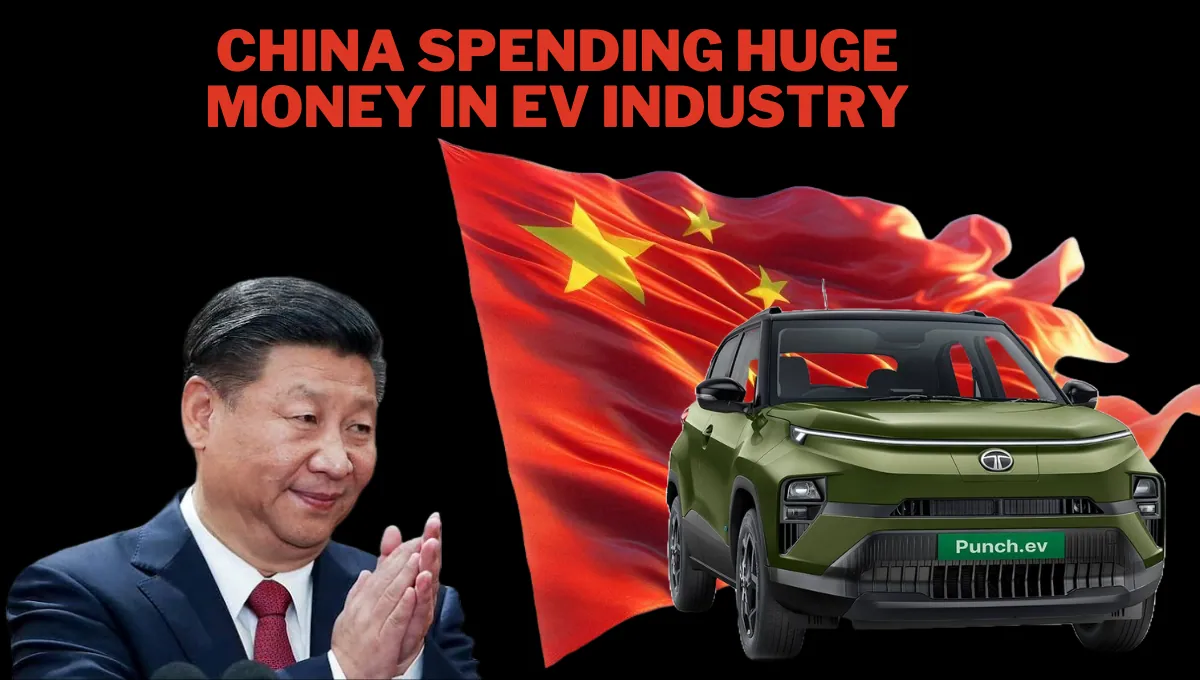China’s commitment to the electric vehicle (EV) industry has been monumental, with an investment totaling $230.8 billion over the past decade.
This substantial financial commitment was highlighted in an analysis published by the U.S.-based Center for Strategic and International Studies (CSIS) on Thursday.
The extensive scale of government support underscores China’s strategic focus on leading the global shift towards electric mobility.
Government Support and Market Impact
Significant Financial Backing
According to Scott Kennedy, trustee chair in Chinese Business and Economics at CSIS, the Chinese government’s support has accounted for 18.8% of the total electric car sales from 2009 to 2023.
This level of investment demonstrates China’s aggressive strategy to dominate the EV market.
Initially, the ratio of government spending to EV sales was over 40% before 2017 but has since decreased to slightly above 11% in 2023.
This reduction reflects the growing maturity and self-sufficiency of the Chinese EV industry.
Changes in Global Trade Policies
In response to China’s burgeoning EV market and the substantial subsidies provided to its manufacturers, other global powers have adjusted their trade policies.
Last month, the United States announced a significant increase in duties on imports of Chinese electric vehicles, raising them to 100%.
Similarly, the European Union has indicated plans to impose tariffs on Chinese electric cars, citing the unfair advantage provided by state subsidies.
Non-Monetary Policies and Domestic Preferences
Favoritism Towards Domestic Automakers
Kennedy also highlighted that Beijing’s support for the EV industry extends beyond financial subsidies.
The Chinese government has implemented various non-monetary policies that favor domestic automakers over foreign competitors.
These policies have created an environment where local manufacturers can thrive, further solidifying China’s position in the global EV market.
Expert Opinions and Industry Progress
“Independent auto analysts and Western automakers with whom I’ve spoken all agree that Chinese EV makers and battery producers have made tremendous progress and must be taken seriously,” Kennedy said.
This acknowledgment from industry experts underscores the significant advancements made by Chinese manufacturers in terms of technology and market penetration.
Economic Performance of Leading EV Manufacturers
BYD and Tesla Profit Margins
Despite the progress, there are economic challenges faced by leading Chinese EV manufacturers.
According to analysis from CLSA, BYD’s net profit per car has declined to $739 over the last 12 months, as of the first quarter.
In contrast, Tesla’s profit per vehicle stands at $2,919. This data highlights the competitive pressures and the need for Chinese manufacturers to improve their profitability.
Comparative Subsidies and Incentives
Kennedy noted that while U.S. legislation provides a $7,500 credit for qualifying electric car purchases, the average Chinese support per EV purchase was $4,600 in 2023. This is a significant decrease from the $13,860 average support in 2018.
The reduction in subsidies reflects a shift towards a more sustainable and market-driven approach in China‘s EV sector.
The Future of China’s EV Industry
Continued Growth and Development
China’s electric vehicle industry is poised for continued growth, driven by substantial government support and strategic policy implementations.
The reduction in the ratio of government spending to EV sales suggests a maturing market that can increasingly stand on its own.
However, the international response in the form of increased tariffs indicates potential challenges ahead.
Global Impact and Competition
As China continues to invest heavily in its EV industry, the global market dynamics are set to change.
The significant progress made by Chinese EV and battery manufacturers positions them as formidable competitors on the global stage.
The increasing tariffs from the U.S. and the EU could influence market strategies and competitive positioning.
Strategic Implications
The strategic implications of China’s investments in the EV industry extend beyond economic gains.
By leading the transition to electric mobility, China aims to reduce its carbon footprint, improve air quality, and secure a dominant position in the future of transportation.
The advancements in EV technology and production capabilities also bolster China’s influence in the global automotive industry.
Conclusion
China’s massive investment of $230.8 billion in the EV industry over the past decade underscores its commitment to becoming a global leader in electric mobility.
The government’s support, both financial and non-monetary, has significantly shaped the industry’s landscape, fostering growth and innovation among domestic manufacturers.
Despite challenges such as declining profit margins and increased international tariffs, China’s EV sector continues to make substantial progress.
As the industry matures, the focus is shifting towards sustainability and market-driven growth, with reduced subsidies and increased competition.
The global impact of China’s EV investments is profound, influencing trade policies and competitive dynamics worldwide.
Moving forward, China’s strategic position in the EV market will play a crucial role in shaping the future of transportation and environmental sustainability.










